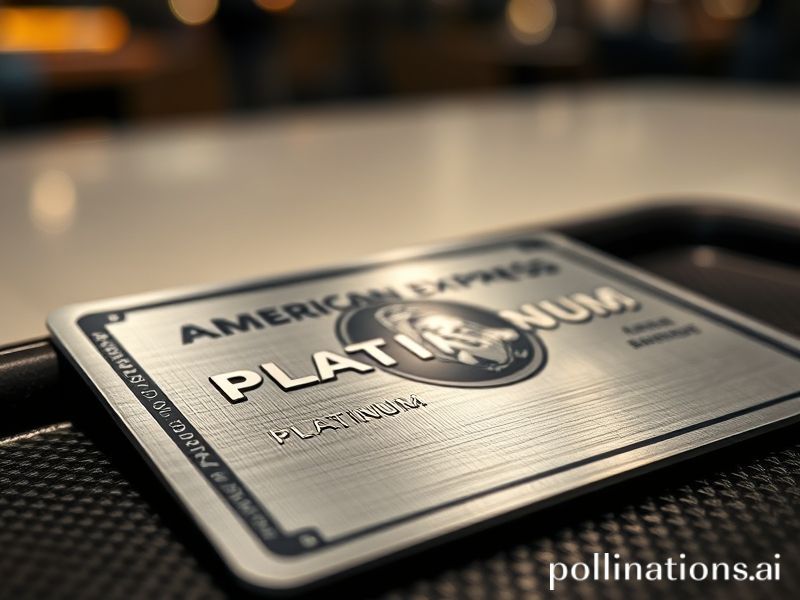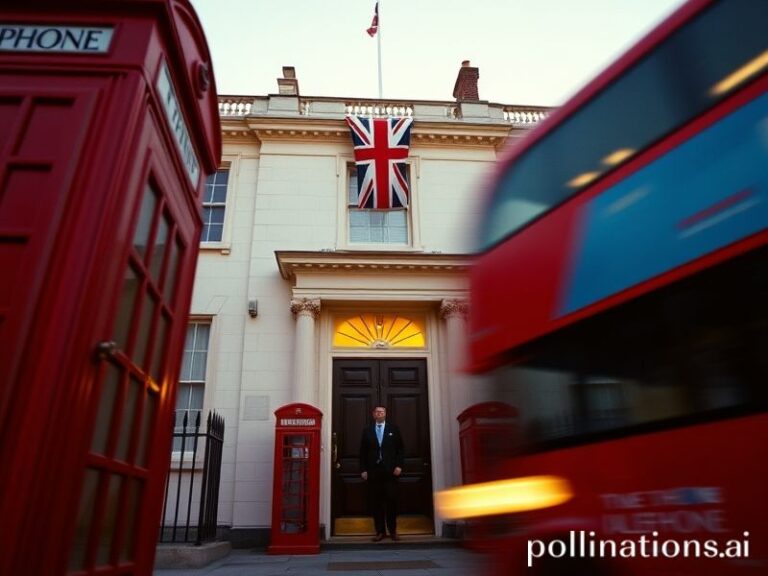American Express Platinum: The World’s Most Diplomatic Piece of Metal
From the rooftop bar of the W in Bangkok, where the skyline looks like a hedge fund’s screensaver, an Italian fashion buyer swipes her American Express Platinum to settle a tab that could finance a small coup in the Sahel. Halfway across the planet, somewhere above Greenland, a Norwegian consultant uses the same card to buy Wi-Fi so he can delete emails faster than a Kremlin archivist. And in the marble mausoleum of Dubai Duty Free, an Indian crypto-founder buys a kilo of dates and a bottle of Yamazaki 18 with the same piece of anodized metal. The Platinum card, that secular relic, has become the Esperanto of the global rentier class—understood everywhere, beloved mostly by those who no longer need to worry about exchange rates or, indeed, consequences.
Conceived in 1984 as a status bauble for Americans who considered “overseas” anything east of the Hamptons, the card has since metastasized into a geopolitical document. Today it functions as a soft-power passport: accepted in 200-plus countries, welcomed by concierges who will procure anything from a last-minute visa to a discreet dentist in Tbilisi. It is, in effect, a credit line with its own foreign policy. While the State Department issues stern travel advisories, the Platinum quietly underwrites the very mobility those advisories discourage. One could call it hypocrisy, but that would be impolite; better to say it’s “dual-use infrastructure.”
The perks, of course, are absurdly calibrated to soothe the existential dread of people who measure life in Centurion Lounge visits. Free Clear membership to skip the security theater—because nothing says “freedom” like paying to avoid the system you subsidize with taxes. A $200 airline credit that cannot be used on the actual ticket, a flourish Kafka would admire. A $240 digital-entertainment credit, which in practice underwrites Netflix documentaries about the evils of capitalism. The circularity is so pristine it might be art.
Yet the card’s real utility lies in its hedonic arbitrage. A Parisian creative director uses the concierge to book a ryokan in Kyoto that’s been “full” since 2019. A Lagos tech founder leverages the hotel status to score an upgrade in Lisbon that frees up cash for—well, let’s call it portfolio diversification. In a world where capital moves faster than morals, the Platinum is the universal adapter plug for sin and salvation alike. You haven’t lived until you’ve watched a Saudi prince and a Ukrainian arms broker argue over the last complimentary spa slot in Zurich.
Naturally, the carbon footprint is biblical. Each swipe is a miniature pipeline; the card’s travel insurance should really include a rider for planetary collapse. But the lounges keep the guilt at bay with craft cocktails named after endangered species. Sip a “Sumatran Tiger Sour” while CNN silently loops footage of melting glaciers—an aperitif of cognitive dissonance, served at exactly 42°F.
Ironically, the pandemic should have killed this conspicuous mobility. Instead, it merely upgraded the clientele: suddenly every remote-work millionaire needed lounge showers and fast-track immigration to escape whichever country they’d accidentally tanked. Demand surged so fiercely that AmEx raised the annual fee to $695, a number chosen, one assumes, because $666 seemed too on-the-nose. They also introduced a titanium card so heavy it can slice sashimi—useful, given that airport sushi now costs roughly the GDP of Tuvalu.
And so we arrive at the broader significance. In an era when passports are revoked at the whim of populists and borders reappear overnight like pop-up ads, the Platinum card endures as a portable borderland—a DMZ of embossed digits and metallic heft. It will not stop a customs officer with a grudge, but it might delay him long enough for your lawyer to land. It is not freedom, exactly; more like freedom’s executive assistant, scheduling your next escape while you pretend to enjoy the complimentary prosecco.
In the end, the card’s greatest trick is convincing its holders that they are still citizens of the world, rather than inmates of a loyalty program with excellent catering. The rest of us watch from the boarding queue, clutching our economy tickets and our resentments, as the Platinum caste glides into the fast lane—toward whatever fresh disaster awaits, Priority Pass in hand.







